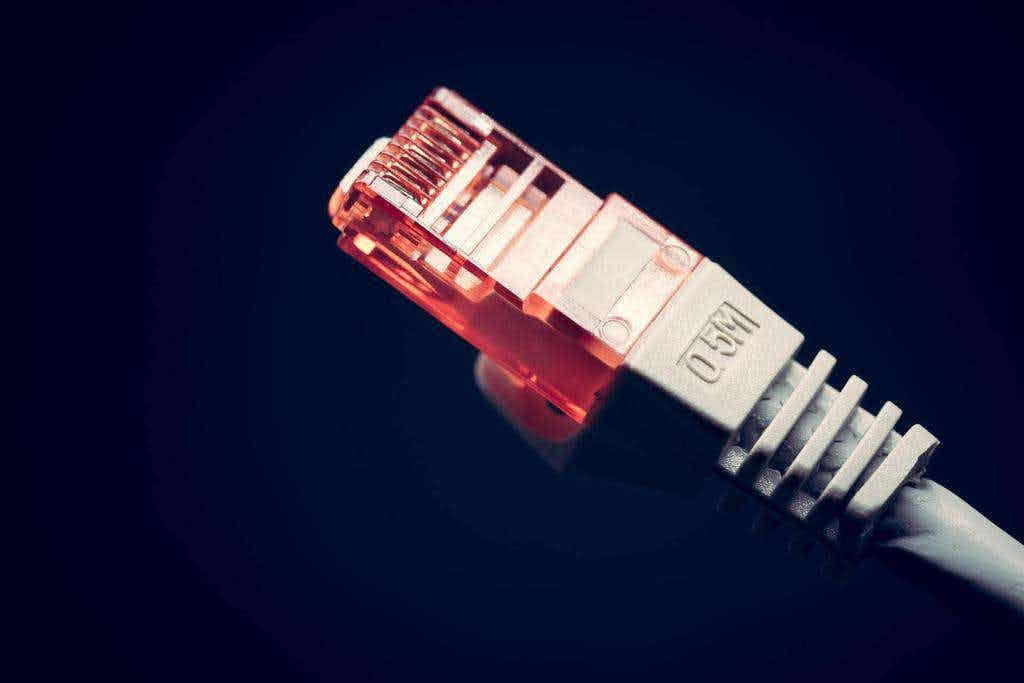Different internet providers (ISPs) offer different broadband packages at a variety of price points. Although some may offer additional bells and whistles, the key differentiator between these packages is how fast they are.
ISPs advertise the internet speeds they offer in terms of bandwidth, which is measured in bits per second (Mbps or Mbit/s). Bandwidth is not the only factor that affects your overall connection speeds, but it is the most important one.
ISPs often only advertise their download bandwidth speeds - the speeds at which data from the internet reaches your home. For ease, in this article, we will also only refer to download speeds. Please see the notes later in this article, however, about upload bandwidth.
Faster packages invariably cost more, although there is value in shopping around between providers. It should go without saying that, in broad terms, faster is better - which a point most ISPs are more than happy to push! However, in real life, the obvious question is: how fast do you really need your internet to be?
The answer, of course, depends very much on how you use the internet.
Light General Use
Light internet activity, such as checking emails, looking up facts on Wikipedia, or browsing and posting on Facebook, uses very little bandwidth. There are many users out there who could get by quite happily on just a 1 Mbps connection, although such a connection might stumble a little on more complex web pages.
In real terms, however, the point is moot. It is pretty much impossible to find a broadband package in the UK these days that offers less than 10 Mbps download speed.
A 10 Mbps internet connection is fast enough for general internet use, even for large families.
Heavy General Use
If you or other members of your family work from home (as many do in these strange times), or otherwise spend a lot of time using the internet then, while probably not strictly necessary, you might want to upgrade your connection. This is especially true if you have more than one heavy internet user in your household.
With broadband speeds getting ever faster and cheaper, it is very tempting to upgrade to a high-speed connection. Indeed, faster is always better when it comes to internet speeds, so this is perfectly reasonable.
Realistically, though, the law of diminishing returns kicks in quite quickly. Most households are unlikely to see a great deal of practical day-to-day benefit after the 25 Mbps mark.
Streaming
One reason you might need more bandwidth, however, is for streaming. Especially if you routinely stream 4K content!
Below are the recommended internet speeds for several popular streaming services in the UK, as suggested by the services themselves:
- BBC iPlayer: 1.5 Mbps for standard playback, 5 Mbps for high quality (720p) playback.
- BT Sport Online:5 Mbs for up to 1080p, or 44 Mbps for HD playback.
- Netflix: 3 Mbps for standard definition (SD or 480p), 3 Mbps for high definition (720p or 1080p), or 5 Mbps for ultra-high definition (UHD, 4K or 2160p) playback.
- Amazon Prime: 0.9 Mbps for standard definition, 3.5 Mbps for high definition (720p or 1080p), or 25 Mbps for ultra-high definition (UHD, 4K, 2160p, and/or HDR) playback.
- Now TV: 2.5 Mbs for standard definition (the only playback option available) playback.
- YouTube: 0.7 Mbs for standard (SD or 480p), 2.5 Mbps for high quality (720p or 1080p), 2.5 Mbs for ultra-high (UHD, 4K or 2160p), or 40 Mbps for 4K playback.
If your internet connection does not meet these recommended speeds, you may experience annoying buffering issues as your player pauses to download more data.
In reality, you probably want to exceed these recommendations to offset the fact that internet congestion can dramatically lower your real-world speeds to much lower levels than the theoretical speeds advertised by your ISP.
As Broadband.co.uk notes,
“When you see the average speed advertised with a broadband deal, it's referring to the average download speed available to at least 50% of the supplier's customers during peak hours.”
It is also worth bearing in mind that if multiple members of your household stream content simultaneously, you need enough bandwidth to stream all this content at once.
So if you like to stream Netflix in 4K on your big screen TV set while your partner streams Amazon Prime content on their laptop, you probably want to budget for at least a 100 Mbps connection.
Other Things To Know
Upload bandwidth
Upload bandwidth affects how quickly you can transfer data from your devices to other devices (including servers) on the internet. ISPs in many countries offer the same download and upload speeds for a given package, but ISPs in the UK almost all offer much higher download bandwidth than upload bandwidth in their packages.
This is not unreasonable since it is download bandwidth that matters most to most people. However, it is something to be aware of if you need to upload a lot of content to the internet (for example, if you upload high-quality videos to YouTube or transfer large files to people you know).
ADSL vs Fibre connections
Most internet connections in the UK use ADSL technology. This transfers data over older copper-wire BT infrastructure, which limits bandwidth. In theory, ADSL2+ (the latest and fastest version of the standard) can deliver speeds of up to 25 Mbps, but speeds rarely exceed 8 Mbps in the real world.
Faster speeds require the use of fibre-optic infrastructure, currently available to 96% of households in the UK. Whether to choose ADSL or “super fast” broadband is, therefore, a simple consumer choice for most, except that most ISPs (the vast majority of which in the UK lease their internet connectivity from BT) charge a high price for superfast fibre internet connections.
A major exception to this rule is Virgin Media, which uses its own fibre-optic network to deliver insanely fast speeds - up to 1 Gigabit (1000 Mbps!) in some locations at relatively low price points.
A significant catch, however, is its Hub 3.0 modem/router. In my personal experience, which appears to be a typical one, this is a substandard device. To fully benefit from the high speeds Virgin offers throughout your home WiFi network, you will need to buy a good third party router (using the Hub 3.0 in modem only mode).
What internet speed do you really need?
We spoke to popular UK-based tech content creator ASBYT, who endorsed our points while adding their own input: "The question of what internet speed is essential for you is an incredibly subjective one! It really depends on who you are and what activities you partake in! As an example, if all you do is scroll social media on your phone, you could even get away with as low as 1 or 2 Mbps download speeds.
"But if you are video streaming, especially high-resolution content, or online gaming, especially in a family setting, where more than one of you is using the internet at the same time, this absolutely will not be enough! In this case, I would aim for a minimum of around 30/40 mbps download.
"You also need to check not only the download speeds of the package but also the upload speeds, especially if you are going to be uploading files to cloud services or videos to social media platforms for example. I would say a minimum upload speed for these kinds of activities should be about 8-15 mbps.
"But by all means, higher upload speeds can make your life a lot easier if you need it for a working environment, where speed is essential. For reference, for the country location I am in, the maximum download speed I get is about 50 mbps, with an upload speed of about 10mbps.
"I personally feel faster download speeds would be nice, but not hugely necessary, whereas, while I can run my business fine using the current upload speeds, certainly faster numbers could enhance my productivity somewhat! I personally think for the everyday person, expensive packages of speeds around 500+ mbps, are on the whole overkill.
"I don’t think the small advantages you gain, like slightly faster file downloads, are worth the extra money, especially if you are penny-pinching in this current global climate. But if you can afford it, and want the very best, for large households, or businesses, and also want to potentially future proof yourself, you may want to opt for one of those top tier packages!"
So, to sum up, most people do not need an ultra-fast internet connection, even for streaming video content on iPlayer. However, if you stream a lot of 4K video content, extra bandwidth is always a worthwhile investment.









